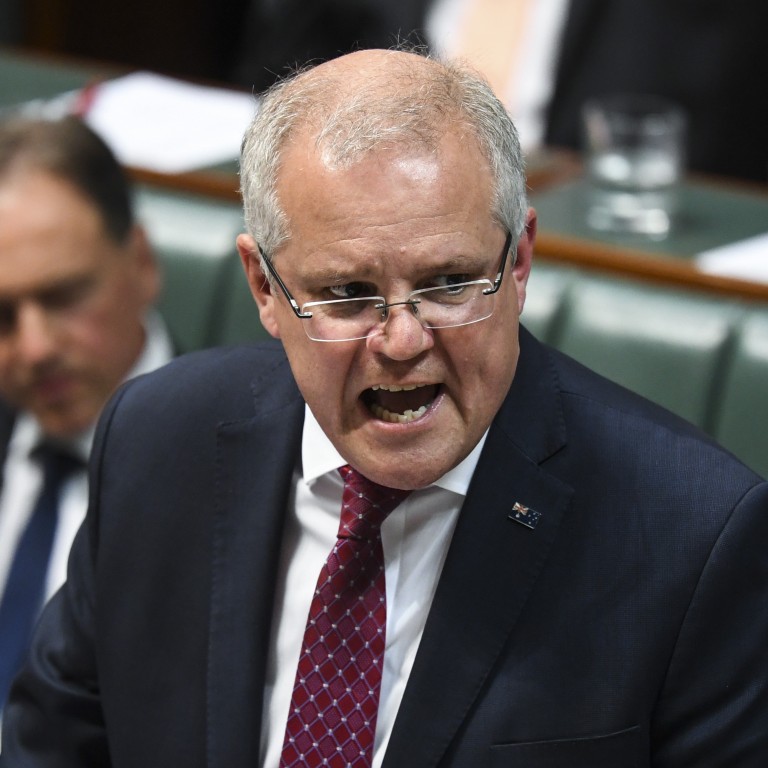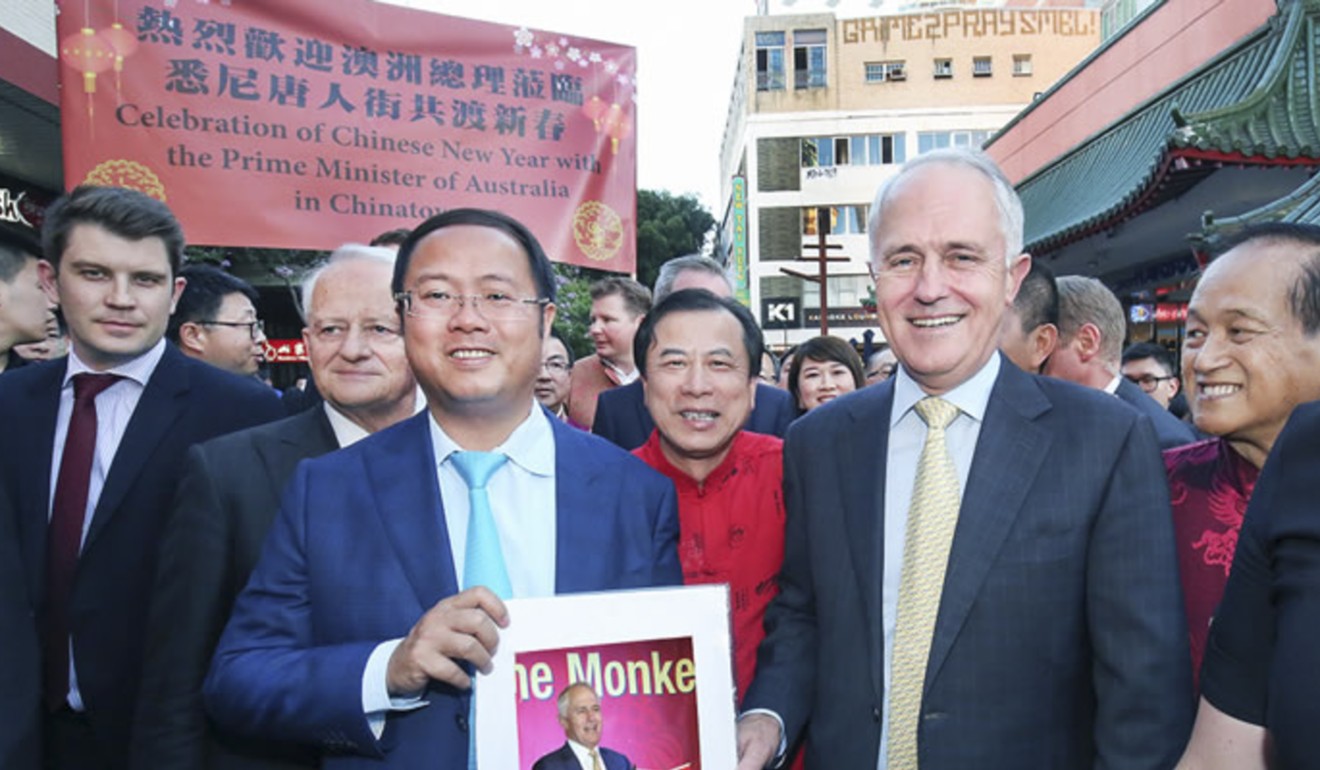
Australia’s US$60 million anti-espionage task force ‘shows it won’t bend the knee’ to China
- Initiative is designed to coordinate and empower agencies in response to foreign interference, following explosive claims of Chinese meddling
- Beijing has branded the allegations ‘lies’ and warned that Australian politicians and media have been ‘cooking up so-called China spy cases’
Prime Minister Scott Morrison said the A$88 million (US$59.6 million) task force would involve all the country’s top intelligence agencies “to disrupt and deter anyone attempting to undermine our national interests”.
The body would also enable intelligence agencies, normally tasked with overseas threats, to coordinate with federal police to identify and prosecute or expel foreign agents.
Australia probes spy plot amid claims of Beijing’s political meddling
“We will be developing new specialist capabilities both from an investigatory capacity as well as being able to pursue investigations and bring them to either disrupt activity or, indeed, follow through and prosecute,” Morrison said during a press conference in Canberra. “This task force to counter foreign interference is about identifying it, disrupting and prosecuting.”
John Blaxland, a professor at the Strategic and Defence Studies Centre at Australian National University, said increased coordination between agencies could lead to greater effectiveness and reflected a years-long trend in national security circles.
“The issue is that the capabilities of each individual agency are insufficient to comprehensively respond to the nature of the challenge posed by foreign interference and that’s because it’s a combination of engaging the people and use of technology onshore and offshore,” Blaxland said.
However, Blaxland also said enhanced capabilities needed to be matched by greater accountability as existing oversight mechanisms were being “left to atrophy”.
“Here I am thinking of, particularly, audit functions and administrative appeals functions, and the Inspector-General of Intelligence and Security, as well as the Parliamentary Joint Committee of Intelligence and Security being more closely connected and resourced to hold these powers in check and to account,” he said.
Yun Jiang, a former official in Australia’s Department of Prime Minister and Cabinet and Department of Defence, said the practical significance and impact of the task force could not yet be determined.
China’s detention of Yang Hengjun on espionage charges is ‘unacceptable’
“Public information on the new task force is very limited,” said Yun, who co-edits China Neican, a newsletter focused on China policy. “For example, there are no public terms of reference. It is unknown how long the task force will run and whether it will deliver a report at the end. Setting up a task force allows the government to announce an initiative first and work out the finer details later.”
Morrison did not explicitly mention China when announcing the task force, instead saying “foreign interference comes from many, many different sources” and is “an evolving threat”.
Explosive claims of this ‘Chinese spy’ seem more fiction than fact
Australian authorities have also been looking into a claim China tried to recruit a Melbourne businessman and get him elected to parliament. Bo “Nick” Zhao – a 32-year-old luxury car dealer who was a member of Morrison’s Liberal Party – apparently rebuffed the offer and was found dead in a motel room in March.
Morrison described the allegations as “deeply disturbing and troubling”.

The law notably required the registration of any person or organisation acting on behalf of a foreign government.
As Australia keeps China at arm’s length, local officials tout Belt and Road Initiative
Malcolm Davis, a senior analyst at the Australian Strategic Policy Institute, said the establishment of the task force was intended to send two clear messages to Beijing.
“Firstly, that we are determined to push back against what we see to be a serious challenge to our national security and sovereignty by a hostile major power actor that is waging ‘political warfare’ against us on a 24/7-365 basis,” Davis said.
“Secondly, we are wanting to get the message to Beijing that we won’t simply acquiesce or accommodate their ambitions – we won’t ‘bend the knee to Beijing’ – and we do intend to push back.”


.png?itok=arIb17P0)